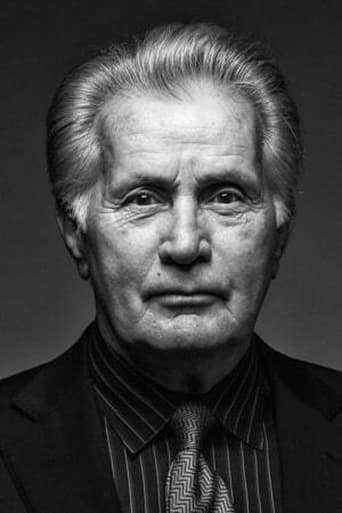BootDigest
Such a frustrating disappointment
NekoHomey
Purely Joyful Movie!
Odelecol
Pretty good movie overall. First half was nothing special but it got better as it went along.
Brainsbell
The story-telling is good with flashbacks.The film is both funny and heartbreaking. You smile in a scene and get a soulcrushing revelation in the next.
flyinglimbs-1
This Year's DocuWeeks Festival makes a strong case for real life By Ernest Hardy Director Jennifer Jessum's Holy Man: The USA vs. Douglas White illustrates complex issues through the story of an individual. White—a revered medicine man on the Pine Ridge Indian Reservation in South Dakota—is falsely accused of child molestation, and even when mountains of evidence attest to his innocence, the court system refuses to release him. Narrated by Martin Sheen, the film puts White's legal battle in the context of historical and ongoing racism against Native Americans that has resulted in legacies of poverty, alcoholism, and the highest suicide rate in the country. It's engrossing but infuriating viewing, and when a white government worker says point-blank, "The federal judicial system and all its accoutrements are on the backs of the Indians," it's impossible to argue otherwise.The Village Voice
mary cadney
This is movie about two broad subjects: the ongoing, systematic injustice shown in formal settings toward indigenous people, and the temptation to engage in victimization. The treatment of Mr. White is an example of the injustice. The testimony of those family members who originally (and falsely) testified against him, but now recant that testimony, illustrates the second: de Debbil (the government) made me do it, I'm not responsible, I was only a child, and afraid. Connecting these two horrible subjects, in real life, is the havoc that generations of injustice and self-hatred, have wreaked on the families of native people. Although not for the faint of heart, some of the film is uplifting -- particularly what Mr. Arvol Looking Horse has to say. For viewers and readers unfamiliar with the history of indigenous people it may come as a happy surprise that our genuine leaders do not encourage resentment, but instead remind us to be aware of real history, to understand that what hasn't killed us will make us stronger. They prompt us to realize that you don't have to deny who you are in order to succeed in the new civilized world, and that in this life the main obligations are to protect the weak, to respect the earth and her people, and to find something or someone to enjoy each day. This is at the heart of the traditional spiritual teaching of such men as Mr. White and Mr. Looking Horse. Christianity may be the foundation of civilization, but the traditional spirituality does not prevent us from succeeding in the new civilized world, and keeps us from its downside. Mr. White died in prison, last year, but we don't have to. To Mr. White's grandsons, who now recant their childhood testimony, I have sympathy and hope this tragedy will strengthen them. We are all children, we are all afraid, but -- I shake my little pebble-filled turtle shell, young men -- it is better to "act out" or raise hell than to give in to bullies. Teach your children.
walkinbird
After the powerful impact of seeing it in the theater, I've come back to an equilibrium, and have a reasoned response. You can decide I'm a unsympathetic idiot, but the fact that I have opinions after having the opportunity to view this film, I do think speaks well of the success of the film's creators delivering their message.I would certainly recommend the film to the curious, and to people I know, who like myself, are fond of American Indian heritage, but are understandably naive. My opinion would not be altogether favorable. But it would only be on two points.Slow. Yes, much is presented that is beautiful. However, if a PBS station were to air it during a pledge drive, they'd have plenty of opportunity to make the pace of telling the story that much more excruciating. I found the repetitive use of the empty White home troublesome, as part of the established detractors of Pine Ridge was stated to be lack of available housing. Now, if the film's creators wanted to point out that the house was somehow within the jaws of the non-moving gears of bureaucracy, that might have added to the prevailing bent of the film, or be a topic for another movie altogether.While I did come away with a tarnished view of any government's misdeeds, I wonder if the story of Douglas White tells the story he wanted to be told? That was where I was both struck with anguish and shaking my head by the end. It is masterfully created propaganda. I believe Russell Means has had clear-minded things to say in his time, but what gets presented in this documentary is all a bit on the scary-side, meaning it's a shame they couldn't have just used the strongest points he had to make. (Welcome to the Reservation!) Walkinbird Docuweek (L.A.) attendee
